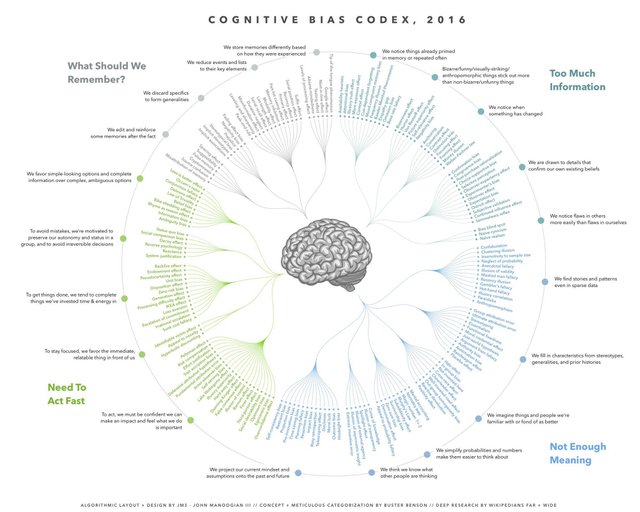Puppets and your faulty you

You are driven by forces. We all are.
Those forces can be internal or external.
Those forces you can be aware of or not.
If you were completely unaware of all of those forces, you'd be a puppet.
If you were completely aware of all of those forces, you'd be a puppet-master.
Would you like to be the starring puppet of a happy story?
Would you like to be the deus ex machina puppet-master of a sad story?
It is not inherently bad to be a puppet, nor it is inherently good to be a puppet-master. It is a matter of the story and its teller. I think.
Simply put, you are both a puppet and its master. You may like your story. You may not.
But who's telling? The short answer is you.
Science knows that you can't trust yourself. Do you? You shouldn't. At least without being aware of the cognitive biases that affect your behavior.
A cognitive bias is a mistake in a process of yours such as reasoning, remembering or evaluating.
If you want to know more about cognitive biases, I suggest you read books like
- Thinking, Fast and Slow by Daniel Kahneman
- You Are Not So Smart: Why You Have Too Many Friends on Facebook, Why Your Memory Is Mostly Fiction, and 46 Other Ways You're Deluding Yourself by David McRaney
So, who's telling? The longer answer is most of the times your faulty you.
It is your faulty you telling the story. You may dislike a good story. You may like a bad story. You can think of you as a puppet while holding the strings. You can think of you as a puppet-master even if you don't hold any string.
Start your journey towards your better you from here: you need a strategy to deal with your faultiness.
Have you heard about cognitive biases? Did you find a strategy to deal with your faultiness?
Congratulations @adigiovanni! You received a personal award!
You can view your badges on your Steem Board and compare to others on the Steem Ranking
Vote for @Steemitboard as a witness to get one more award and increased upvotes!